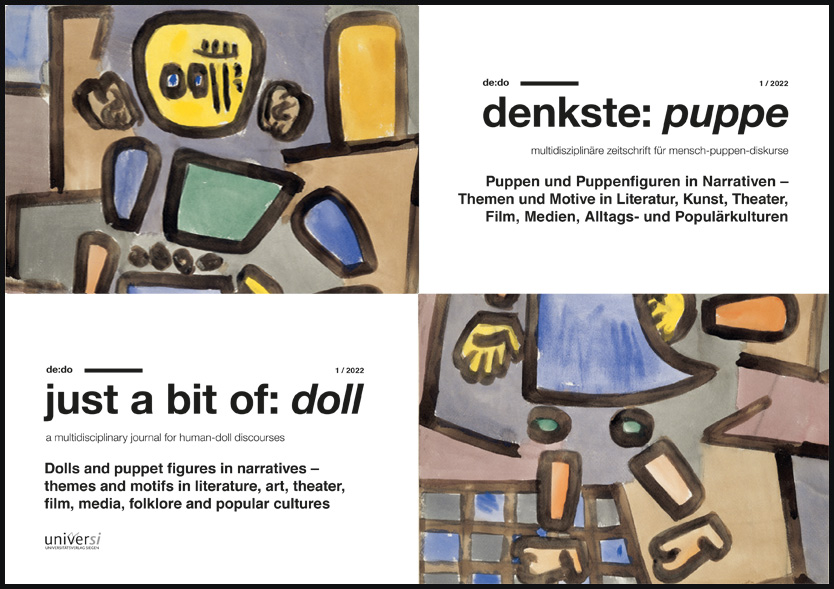Puppets in Preschool: Children as the ‘More Knowledgeable Other’ – A Snapshot from a Research Story
DOI:
https://doi.org/10.25819/dedo/130Keywords:
puppets as mediating tools, zone of proximal development (Vygotsky), early childhood settings, inclusionAbstract
Puppets and dolls play an infinite number of roles in shaping children’s learning and development in early childhood settings. This paper examines the ‘principle of the puppet’ when viewing the doll/puppet from a twist on the Vygotskian perspective as the More Knowledgeable Other activating imagination and the Zone of Proximal Development (ZPD) (Vygotsky 1978). Traditionally, approaches in early education have placed the adult as the knower and the child in the position of needing to know. In this paper it is argued that this overlooks the knowledge of children and calls for a different research approach. In the following article I outline how the puppet may occupy the position of the less knowledgeable other, thus, redefining and expanding on the use of this strategy in early childhood settings. It includes one day of a six months research story when a yellow duck puppet, named Mabel, was able to activate the ZPD through this learning process and repositioned the children as experts.
Published
How to Cite
Issue
Section
License
Copyright (c) 2022 Olivia Karaolis

This work is licensed under a Creative Commons Attribution-ShareAlike 4.0 International License.



